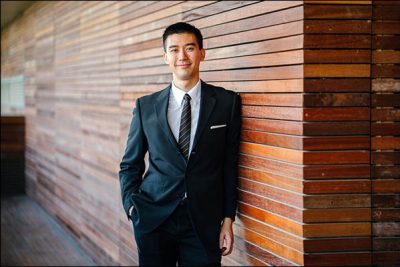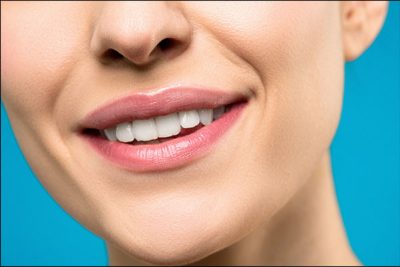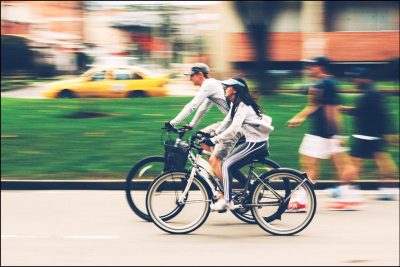If you are interested in developing a modern RP English accent (received pronunciation) practice the following advice in this article. It’s a gradual process of acquiring new habits but with total commitment you will see significant results in a few months. RP meaning = regionally neutral middle class accent of England.
Conservative RP accent is the old fashion accent, or posh, form used by the queen of England, some elder politicians and aristocrats.
Modern or mainstream RP accent is a standard version that is the most popular to acquire. The British phonetic transcriptions use these sounds.
Contemporary RP accent is version associated with the younger generation. Location is generally London, the south and the south east.

1. Obviously, listen to as many RP accents as possible. Practice and repeat their sentences. Pay special attention to the length of certain words, intonation, pauses, stress and connected speech.
You could research;
Emma Watson
Hugh John Mungo Grant
Gemma Chan
Dr Tara Swart
Joanna Lumley
Douglas Murray (author and political commentator)
Diana Rigg (actress)
Kenneth Branagh (Harry Potter)
Phoebe Waller-Bridge (actress)
BBC narrators
Ralph Fiennes
Judi Dench (actress)
Daniel Radcliffe
TV Series such as Downton Abbey

2. Learn the consonants, vowels and the phonetic table.
There are 21 consonants: B, C, D, F, G, H, J, K, L, M, N, P, Q, R, S, T, V, W, X, Y, and Z.
The principle vowels are ; A, E, I, O, and U.
Although there are only 5 vowels in English there are about 20 different vowel sounds.
Monophthong = a vowel sound in which the tongue stays in one position.
Diphthong = a vowel sound in which the tongue changes position to produce the sound of two vowels.
Voiced = We make a sound with our vocal cords.
Unvoiced = We don’t make a sound with our vocal cords.
A rounded vowel is when the lips form a circular opening.
Unrounded vowels are pronounced with the lips relaxed.
A phoneme is one of the smallest units of speech that make one word different from another word.
3. Mouth position = Drop, relax and release the tension in your jaw and allow it to hang loose. Lower your tongue so that it sits along the bottom of your mouth, behind your bottom teeth.
Many RP English sounds are produced simply by moving your lips to a different position while keeping your jaw relaxed and your tongue lowered. With some sounds like the th, your tongue would move to the roof of the mouth.
Syllable = a single unit of speech. This might contain a vowel, a separated part of the word or the whole word.
Stressed syllables get stressed louder and longer.
Unstressed syllables get said quieter and quicker.

4. It may seem obvious but don’t use North American words in your vocabulary.
Trousers UK Pants USA
Bill UK Cheque USA
Football UK Soccer USA
Boot UK Trunk USA
Chips UK Fries, French fries USA
Rubbish UK Trash, Garbage USA
Biscuit UK Cookie USA
Pavement UK Sidewalk USA
Torch UK Flashlight USA

5. The Schwa sound is the most common vowel sound in the English language. The symbol looks like a reversed e. / ə / It can represent any of the vowels or some consonants so the best way to know if it exists is to go to the online Cambridge dictionary and look for it in the phonetic description. banana /bəˈnɑː.nə/. In this example, the two a’s in banana are pronounced as a schwa.
It is unstressed, short, low in pitch (that is flat) and spoken quite fast. It sounds like an “uh” similar but not the same as a short, unstressed “U”. To make this sound you do nothing with your mouth position, jaw or tongue. Just relax and make the noise.
Some rules;
- If a word ends in “r” regardless of the vowel used, the schwa sound is expressed. The RP accent typically drops the “r” sound and pronounces the last syllable as a schwa. Weather.
America = /əˈmer.ɪ.kə/
Usually = /ˈjuː.ʒu.ə.li/
Manager = /ˈmæn.ɪ.dʒər/
Mother = /ˈmʌð.ər/
The = /ðə/
Teacher = /ˈtiː.tʃər/
Question = /ˈkwes.tʃən/
Authority = /ɔːˈθɒr.ə.ti/
National = /ˈnæʃ.ən.əl/
Serious = /ˈsɪə.ri.əs/
Sufficient = /səˈfɪʃ.ənt/
Upon = /əˈpɒn/
Minimum = /ˈmɪn.ɪ.məm/
Words ending in these letters.
er = master /ˈmɑː.stər/. water /ˈwɔː.tər/
ar = sugar /ˈʃʊɡ.ər/. similar /ˈsɪm.ɪ.lər/
or = doctor /ˈdɒk.tər/. author /ˈɔː.θər/
our = flavour /ˈfleɪ.vər/. colour /ˈkʌl.ər/
re = theatre /ˈθɪə.tər/. centre /ˈsen.tər/.
Weather Carrot About
6. Let’s pronounce the word “the”.
- Use “thee” if the subject starts with a vowel (or for emphasis) such as “apple”.
The apple is green. /ðiː/ - Use “thuh” if the subject does not start with consonant such as “person”.
The person is ecstatic. /ðə/

7. The /ɑː/ sound or open back unrounded vowel. (Unrounded vowels are pronounced with the lips relaxed). The tongue is right at the bottom of the mouth and is also pulled back. This is a longer sound as stated by the two dots. It sounds like it has an imaginary R sound. Open means = open mouth and back means = tongue back. Here are some examples in RP English.
Arm = /ɑːm/
Apartment = /əˈpɑːt.mənt/
Ask = /ɑːsk/
Bath = /bɑːθ/
Grass = /ɡrɑːs/
Far = /fɑːr/
Fast = /fɑːst/
Last = /lɑːst/
Path = /pɑːθ/
Start = /stɑːt/
The train is racing so fast through the station.
The dog was playing in the puddle and needed a bath.
The grass is always greener on the other side. – Idiom.
8. The /ɔː/ sound. One vowel sound. It sounds like “ore”.
This is how to pronounce it in RP English so you sound very British.
Ball = /bɔːl/
Bought = /bɔːt/
Caught = /kɔːt/
Ought to = /ˈɔːt tu/
Law = /lɔː/
Poor = /pɔːr/
Taught = /tɔːt/
Saw = /sɔː/
Sure = /ʃɔːr/
He ought to have thought more about the importance of study.
I taught myself to ride a bike.
He sure is an intelligent student.
9. The / aʊ/ sound. aʊ = ow and ou. The lips are a bit stretched out and as you speak they turn to rounded. It sounds like when someone pinches you.
how now brown cow frown town house thousand trousers round hound sound mouse mountain bouncy soul snow bowel towel vowel loud proud cloud out mouth
10. The /ɒ / Push your lips out into a circle shape. Round your lips to make the “oo” sound and keep it short. The tongue is pushed back slightly and stays low in the mouth. Produce a full, rounded sound from the back of your mouth.
Bot = /bɒt/
Clot = /klɒt/
On = /ɒn/
Cost = /kɒst/
Hot = /hɒt/
Hop = /hɒp/
Lot = /lɒt/
Not = /nɒt/
Pot = /pɒt/
Stop = /stɒp/
Do not stop following your dreams.
We will hop on the bus at the bus stop.
A lot of hot natural thermal spas are present in the city of Budapest.



